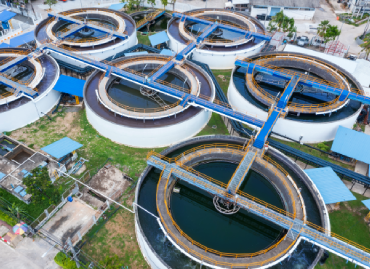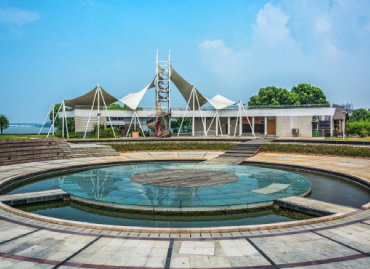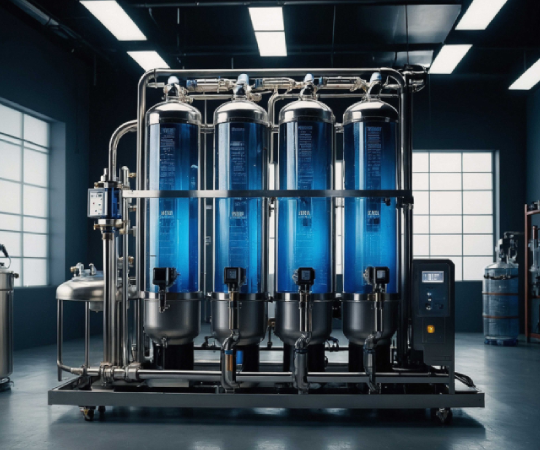- By Admin
- 22 Sep 2025
- ETP Plant
Comprehensive Water and Wastewater Solutions for India's Growing Pharmaceutical Manufacturing Industry
India is one of the world's largest producers of pharmaceuticals, supplying nearly 20% of global generic medicines and exporting to over 200 countries. Within India, Maharashtra stands as a major hub for pharmaceutical manufacturing, housing large industrial clusters in cities such as Mumbai, Pune, Nashik, and Aurangabad. These hubs include small and medium-scale units, bulk drug manufacturers, and multinational corporations producing formulations and active pharmaceutical ingredients (APIs).
The industry's success comes with significant responsibility: ensuring high-quality production while managing resources such as water efficiently. Water is not only central to manufacturing but also critical to sanitation, cleaning, and maintaining regulatory standards. To sustain this growth while protecting the environment, pharmaceutical units require modern and reliable water and wastewater treatment solutions.
"In the pharmaceutical sector, water is far more than a utility—it is the lifeline of quality, hygiene, and compliance. Every drop is vital, not only in manufacturing but also in protecting communities and the environment. Sustainable water treatment ensures pharmaceuticals remain safe, effective, and responsibly produced for a healthier future."
Water's Role in Pharmaceutical Operations
Water is essential across nearly every pharmaceutical activity. It is required for API synthesis, drug formulation, washing of reactors and tanks, preparation of solutions, and maintaining sterile production environments. Ultra-pure water (UPW) and purified water are indispensable in laboratories, injection preparations, and tablet coating.
Beyond direct production, water is used extensively in HVAC systems, cooling towers, and boilers, while also supporting plant-wide cleaning and sanitation processes. A failure to maintain water quality can compromise product safety, regulatory compliance, and brand credibility. Hence, a reliable and contaminant-free water supply is the foundation of any pharmaceutical operation.


Complex Wastewater Challenges in the Industry
Pharmaceutical plants produce wastewater with unique characteristics. Effluents arise from chemical synthesis, solvent recovery, equipment cleaning, and formulation processes. These effluents often contain residual drugs, solvents, heavy metals, and organic pollutants. In addition, wastewater from scrubbers, cooling towers, and general cleaning adds to the overall volume.
Such wastewater is highly variable and often toxic, containing antibiotics, hormones, antiseptics, organic acids, and other compounds. High chemical oxygen demand (COD) and biological oxygen demand (BOD) levels make treatment challenging. Moreover, traces of APIs in untreated effluents can lead to antimicrobial resistance, posing a long-term environmental and public health risk.
STPs and ETPs for Effective Wastewater Treatment
Pharmaceutical facilities rely on a combination of Effluent Treatment Plants (ETPs) and Sewage Treatment Plants (STPs) to manage wastewater responsibly. While STPs handle domestic sewage from restrooms, kitchens, and canteens, ETPs are designed for chemical and industrial effluents.
- These treatment systems typically involve multiple stages:
- >> Primary treatment: Screening, sedimentation, and neutralization.
- >> Secondary treatment: Aerobic and anaerobic digestion using activated sludge processes.
- >> Tertiary treatment: Advanced oxidation, membrane filtration, or activated carbon for polishing.
By carefully integrating these systems, plants can ensure that effluents meet Central Pollution Control Board (CPCB) norms and international compliance requirements, especially when products are exported to regulated markets.
Modern Technologies Driving Efficiency
Leading pharmaceutical units are increasingly turning to advanced technologies like Reverse Osmosis (RO), Membrane Bioreactors (MBR), Ultrafiltration (UF), and Zero Liquid Discharge (ZLD) systems. These technologies not only purify wastewater but also enable safe reuse for non-potable purposes.
For example, treated water can be reused in cooling towers, boilers, floor cleaning, and gardening. This reduces dependence on freshwater sources, lowers operational costs, and supports green certifications. Automation and real-time monitoring ensure that systems operate efficiently, enabling predictive maintenance and consistent regulatory compliance.
Tailored Solutions for the Pharmaceutical Industry
Pharmaceutical wastewater requires specialized treatment solutions. Standard treatment methods are often insufficient due to the presence of active drug compounds. Customized ETPs and WTPs designed by experienced providers address these unique challenges.
- We offer end-to-end services, including:
- >> Site audits and water quality assessments.
- >> Design and engineering of ETP, STP, WTP, and RO systems.
- >> Installation and commissioning of treatment plants.
- >> AMC services, operator training, and digital monitoring for performance optimization.
Whether developing a new facility or upgrading existing infrastructure, pharmaceutical manufacturers benefit from solutions that ensure efficiency, compliance, and long-term reliability.
Toward Sustainable Pharmaceutical Operations
Sustainability is no longer optional for the pharmaceutical industry; it is an operational necessity. By adopting advanced water treatment technologies, companies can reduce freshwater consumption, minimize wastewater discharge, and comply with stringent environmental standards.
This approach also enhances brand reputation in global markets, where sustainability practices are increasingly valued. By ensuring efficient water management, pharmaceutical companies contribute not only to their operational success but also to public health and environmental protection.
6. Summary / Conclusion
The pharmaceutical industry, a pillar of India's economy, depends heavily on water for production, sanitation, and quality assurance. With operations concentrated in Maharashtra, managing water responsibly is vital. Pharmaceutical effluents are highly complex, requiring customized ETPs, STPs, and modern technologies such as RO, MBR, and ZLD for effective treatment. Reuse of treated water helps conserve resources, reduce costs, and meet compliance standards. Tailored solutions, backed by expertise and automation, ensure sustainability and reliability. By prioritizing water management, pharmaceutical companies can achieve operational excellence while fulfilling their responsibility to the environment and global healthcare standards.































































